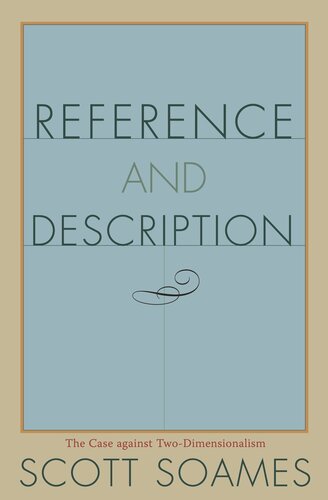

Most ebook files are in PDF format, so you can easily read them using various software such as Foxit Reader or directly on the Google Chrome browser.
Some ebook files are released by publishers in other formats such as .awz, .mobi, .epub, .fb2, etc. You may need to install specific software to read these formats on mobile/PC, such as Calibre.
Please read the tutorial at this link: https://ebookbell.com/faq
We offer FREE conversion to the popular formats you request; however, this may take some time. Therefore, right after payment, please email us, and we will try to provide the service as quickly as possible.
For some exceptional file formats or broken links (if any), please refrain from opening any disputes. Instead, email us first, and we will try to assist within a maximum of 6 hours.
EbookBell Team

5.0
80 reviewsIn this book, Scott Soames defends the revolution in philosophy led by Saul Kripke, Hilary Putnam, and David Kaplan against attack from those wishing to revive descriptivism in the philosophy of language, internalism in the philosophy of mind, and conceptualism in the foundations of modality. Soames explains how, in the last twenty-five years, this attack on the anti-descriptivist revolution has coalesced around a technical development called two-dimensional modal logic that seeks to reinterpret the Kripkean categories of the necessary aposteriori and the contingent apriori in ways that drain them of their far-reaching philosophical significance.
Arguing against this reinterpretation, Soames shows how the descriptivist revival has been aided by puzzles and problems ushered in by the anti-descriptivist revolution, as well as by certain errors and missteps in the anti-descriptivist classics themselves. Reference and Description sorts through all this, assesses and consolidates the genuine legacy of Kripke and Kaplan, and launches a thorough and devastating critique of the two-dimensionalist revival of descriptivism. Through it all, Soames attempts to provide the outlines of a lasting, nondescriptivist perspective on meaning, and a nonconceptualist understanding of modality.